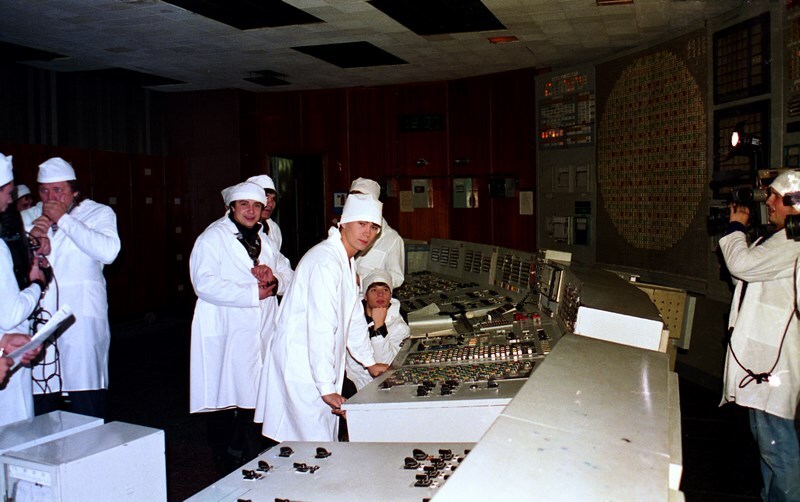I am so tired haha
PaX [comrade/them, they/them]
Very tired nerd who doesn’t know how to speak correctly
Ask me about floppa, Plan 9, or computer architecture or anything computers really (if you want)
:cat-vibing:
If I don’t reply to you it’s probably cuz I’m too tired, sorry :(
- 1 Post
- 21 Comments

 91·3 months ago
91·3 months agoOkay but it was less
 , relatively
, relatively  to now
to now

 2·4 months ago
2·4 months agoOhh, I know, I was just making a joke cuz ed will print
?when it doesn’t recognize a command and many people will see that over and over if they can’t figure out how to exit lolI also got lost in vi and ed when I first used them lol
Tbh if I’m just making quick edits to config files or whatever I use nano lmao

 1·4 months ago
1·4 months ago?

 41·4 months ago
41·4 months agoIf you like Unixy editors, highly recommend also looking into acme
Russ Cox describes it in this video as more like an “integrating development environment” as in it works with your surrounding operating system rather than an “integrated development environment”
Doesn’t shine as much on Unix as in Plan 9 though. Also no linter or formatter built into or distributed with acme but you probably could get your language’s usual tools to work pretty well with it

 171·4 months ago
171·4 months agoEd is the standard text editor.

 4·5 months ago
4·5 months ago

 31·5 months ago
31·5 months agodeleted by creator

 0·7 months ago
0·7 months agoThe vast majority of drivers are included with the Linux kernel now (in tree) so the difference usually comes down to kernel version (newer kernels have more drivers, of course) or kernel configuration set at compile-time (this can be anything from including or not including drivers, to turning driver features on and off, or more fundamental changes beyond drivers)
You can get kernel version info from
uname -aand a lot of the time, probably most of the time (this is also down to configuration), you can get kernel configuration info from/proc/config.gz(usegzip -dto decompress) or something like/boot/configThen you can run
diffon configurations of 2 different distro kernels you’re interested in to see how the 2 distribution’s kernels were set up differentlyThis could also be caused by different setups of userspace tools or UI that interact with these drivers in different, sometimes worse ways but this is usually much less likely in my experience (most Linux distros do things like this the same way these days tbh)
Oh, also, there are a lot of drivers that require vendor-supplied firmware or binary blobs to function and most of the time distros don’t bake these into the kernel (although it is possible) and different distros might have more or less of these blobs available or installed by default or they might be packaged differently. The kernel should print an error message if it can’t find blobs it needs though
I guess there’s kinda a lot to consider lol. Sorry if all of this is obvious
What hardware are you talking about specifically?

 0·7 months ago
0·7 months agoOhh that’s true, I didn’t think about that. It would be difficult to route anything through it unless you were connected directly to it with nothing in-between because no other router would forward packets destined for somewhere else to my machine (except maybe in the extremely unlikely case of source routing?). It seems obvious now lol, thank you!
I’ll write some firewall rules just in case

 0·7 months ago
0·7 months agoOut of all the parasites capitalist society has produced, Nestle executives possibly deserve the
 the most
the most

 0·8 months ago
0·8 months agoI see. Our motherboards have different chipsets (I have an X570 in mine). It probably has nothing to do with my issue…
Hoping those kernel parameters fix it. I wish I could help further. PCs are just a bottomless, mostly undocumented rabbithole :(

 0·8 months ago
0·8 months agoWhat motherboard do you have? Also what happens exactly when the lock-ups happen? Have you ever been playing audio when the lock-ups happen and does it loop or stop or keep playing?
I recently had to “fix” (workaround) a similar issue in the OpenBSD kernel with a specific hardware peripheral on my PC (running a 2nd-gen Ryzen), the High Definition Audio controller. For whatever reason (and only when I was running OpenBSD) interrupts from the HDA controller (to let the CPU know to refill audio buffers) would just randomly stop making it to the CPU and audio would loop for a few seconds and then shut off. I spent a long time trying to figure out what causes it and reading Linux driver code but I couldn’t find a cause or why only OpenBSD would trigger it. I ended up having to write kind of a hacky polling mode into the HDA driver. My only guess is some of these AMD-chipset-having motherboards have faulty interrupt controllers.
Maybe there is a similar issue with your system and timer interrupts aren’t making it to your CPU or something. But I’m not really an expert on PC architecture and idek if it even works like that on PCs lol
Sorry for so many questions but do you also have any kernel logs available from when this happens?
I simply do both
It’s not working

There are some purpose-built ARM Linux laptops available but as an owner of an unused Pinebook Pro… can’t recommend

Walking the path of a PC hater is not easy
Rip out the fan and connect the processor heatsink to a heatpipe
Then carry around a cup of water to dip the heatpipe into
This is not a bit, I am a real hardware designer
Xorg? Wayland? You have bespoke protocols just for windowed graphics? I’m happy with my /dev/draw and /dev/wsys/*

Unix is a zombie OS that should probably die


Windows UI design peaked with Windows 98 and Unix UI design peaked with IRIX imo